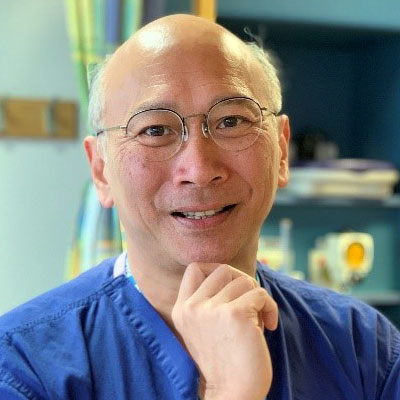‘Agile’ Approach Aims To Accelerate Ridgeback’s COVID-19 Timeline
UK Leading On Innovative Adaptive Trials
Executive Summary
The Bayesian adaptive trial design is looking to slash development times, starting with a Phase II trial of Ridgeback’s drug, a potential challenger to Gilead’s remdesivir.
A promising new antiviral therapy against COVID-19 is to be at the center of an innovative trial collaboration between Ridgeback Biotherapeutics LP and academic researchers in the UK.
US company Ridgeback has already fast-tracked its antiviral candidate EIDD-2801 through Phase I trials, and will now work with the UK's AGILE group on Phase II trials.
The AGILE collaboration is between the University of Liverpool, Liverpool School of Tropical Medicine, Southampton Clinical Trials Unit, University of Southampton and Lancaster University and others.
Early stage trials could see their timelines slashed in the UK-based AGILE initiative, which uses a Bayesian multi-arm, multi-stage adaptive trial design. Its lead investigators say the normal 12 to 18 months timelines for a Phase I trial could be condensed to just two months.
This statistical approach is well suited to rapidly identifying candidates likely to be effective against COVID-19.
Bayesian methods provide a statistical model to analyze the treatment effect and the probability of a drug’s likely efficacy, making them well suited to trials generating rapid interim analyses from just a handful of patients.
The platform combines this statistical approach with adaptable protocols to create a fast and flexible way to simultaneously test safety and efficacy in the target population, ie not the usual healthy volunteers used in many Phase I trials.
AGILE’s lead investigators say this makes it a “proof of confidence engine” helping research move swiftly on to larger scale studies when promising candidates emerge.
“In the ongoing COVID-19 pandemic, we need to find innovative ways to identify safe and effective treatments as soon as possible,” said Professor Saye Khoo, chief investigator on AGILE at the University of Liverpool.
He said the approach allows compounds with limited potential to be rejected swiftly and helps zero in on those sought-after ‘game changers’.
“Seeing the launch of this new platform to test brand new COVID-19 treatments is truly exciting given the impact that any effective treatment could have on the pandemic and restarting society. We are optimistic that AGILE will accelerate the development of treatments for COVID-19, and also prepare us to respond quicker to future pandemics.”
The study was set up to test multiple potential therapeutics, and EIDD-2801 has been selected to be the first oral anti-viral to be studied in the platform.
Headquartered in Miami, FLA, Ridgeback focuses on orphan and infectious diseases, and its lead candidate EIDD-2801 is an oral ribonucleoside analog, the same class of therapies as Gilead Sciences, Inc.’s remdesivir.
Shortly after the rapid Phase I trial was completed, Ridgeback unveiled a development and licensing deal with Merck, as part of the big pharma company’s strategy to target COVID-19. (Also see "Latecomer Merck Enters Coronavirus Vaccine Field With Themis Acquisition" - Scrip, 26 May, 2020.)
Wendy Holman, co-founder and CEO of Ridgeback said she was very pleased to work with the AGILE team and looked ahead to the drug’s continued development.
“It was a tremendous trans-continental effort to bring EIDD-2801 into a Phase II efficacy protocol to benefit COVID-19 patients in the UK immediately following Phase I. Ridgeback is especially appreciative of the rapid and intensive input and guidance from the UK’s Medicines and Healthcare products Regulatory Agency (MHRA) throughout this process.”
The AGILE success is part of a wave of adaptive trials launched globally in response to the challenge of COVID-19. Perhaps most notable among these is another UK trial, RECOVERY, led by the University of Oxford. (Also see "Coronavirus Update: Will Dexamethasone Breakthrough Make Remdesivir Irrelevant?" - Scrip, 17 Jun, 2020.)
The RECOVERY trial investigators have won plaudits for the rapid design and recruitment and generation of results, which include demonstrating that hydroxychloroquine and AbbVie’s Kaletra (lopinavir/ritonavir) are not effective against the coronavirus, while also showing that dexamethasone has a significant mortality benefit in hospitalized patients with severe COVID-19 infections.
However AGILE’s leaders said their approach differed to RECOVERY in that instead of investigating existing drugs repurposed against COVID-19, AGILE targets entirely new candidates.
The AGILE approach
• Drugs that are accepted for the trial are dosed in a small group of six patients.
• After one week, another group of six patients are dosed and this is repeated. This allows the most effective dose to be found.
• Successful drugs will move to a seamless Phase I/IIa trial that will test in larger groups. These will be used as a “proof of confidence” that the drug is both safe and has a significant biological impact.
• Safe and potentially highly effective treatments will be referred to partners for Phase III clinical trials.
UK Regulator's Role
Also playing a vital role in accelerating progress in the study was the US Food and Drug Administration, Ridgeback’s contract research organization Covance and the MHRA.
Siu Ping Lam, director of licensing, at the MHRA commented: “Patient safety is our highest priority. We approved this trial, as it not only innovates in the early clinical trial process, which is crucial in the current pandemic, but it is also robust and safe, providing opportunities for more rapid progress towards suitable treatment options. We are delighted that such a platform, designed by UK clinicians and scientists, has the potential to change the future of clinical trials and global healthcare for the better.”
Please note: this article was amended to correct inaccurate references to Ridgeback working with AGILE in Phase I, rather than Phase II, as is the case.

